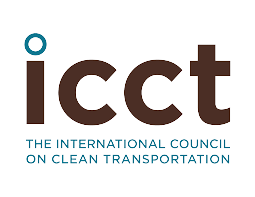Fair Travel
Over a 1,000 km journey, an air traveller emits 285 kgs of CO2 kilometer while a railway passenger in in even an Air Conditioned executive-class compartment emits 30 kgs, in a comfortable AC bus the same passenger emits 70 kgs. Extensive IT-company related Greenhouse Gas inventorying research from 2015 to 2018 has led to the following sobering conclusion: an average medium-haul domestic return flight from Bangalore to Mumbai emits Climate Pollution (i.e. Greenhouse Gasses) that neutralizes the benefit of 100 trees – essentially, cut down forever. This can be seen as personally chopping down 1 tree at the end of the return flight, each time we fly.
The Indian domestic aviation market is currently the fastest growing domestic market on the planet and is going to be the 3rd largest air passenger market by 2025 as against the 7th largest in the world as of 2017; Aviation’s climate pollution are rising by 5.5 % year-on-year, from 710 millions tonnes in 2013 to 905 million tonnes in 2019. If we do nothing, the climate breakdown caused by this part of our economy alone will triple (i.e. 3X) to 2.7 billion tonnes of CO2e by 2050.
Large IT companies in India have demonstrated thought leadership to mitigate their climate impacts in FY 2020-2021. Some IT companies have established ‘green’ criterion to be met by vendors/suppliers, some have set internal targets to switch to climate friendly recycled paper. Procurement of energy from renewable resources and replacing conventional lighting systems with LED technology are other initiatives underway. ’Green’ initiatives by Indian IT companies are gradually emerging, however air travel remains untouched despite widespread awareness amongst sustainability officials in these companies that air travel is the single largest hotspot of climate pollution emerging from their operations. An industry known for ‘innovation’ in India sticks to business-as usual mode when it comes to excessive flying”.
Fair Travel is a non-profit program, for combatting climate breakdown by reducing excessive flying.
The Program
Prioritizing narrowly defined notions of ease, comfort, and efficiency while being in denial about its Climate Pollution or legitimizing it as short-term disruption of the ecology for long-term economic gain, is a formidable barrier to transformation in attitudes and practices of business travel. FairTravel works with pioneering IT and BPO/Finance Companies in India through a participatory method, which has been successfully employed in global enterprises, called: ‘carbon reduction action groups’ (CRAGs). CRAGs are mixed-groups consisting of anywhere from 10 to 40 employees across the corporate management structure. They work together, in a facilitated environment, to set their own Carbon Footprint reduction targets, including climate impacts from business related Air Travel. The groups will co-create their roadmap to achieve these reduction targets alongside FairTravel which will handhold them through the entire process, and provide all necessary training and support to achieve these targets. FairTravel will provide carbon footprinting and other decision support, along with communications support, for Corporate Sustainability teams of participant companies to amplify these pioneering efforts.
Our Partners:
Fair Travel program is supported by ‘Stay grounded’ network (headquartered in Vienna, Austria) is a global network of initiatives, organizations, and activists working together worldwide to bring forward a just, environmentally sound transport system.




Aviation Facts:
Despite flying being a privileged activity of the global minority, aviation has already contributed about 3.5% of all human caused global heating to date. An average return flight from Bangalore to Mumbai emits Climate Pollution (i.e. Greenhouse Gasses) that erases the benefit of 100 trees; that’s each passenger personally chopping down 1 tree at the end of the return flight. In 2019-2020, flights taken by a typical Indian IT Company with 200,000 employees emitted 110,000 tonnes of climate pollution: that is the climate impact from chopping down 0.5 million trees. A science-based projection for NASSCOM’s 2800+ Indian member companies has revealed that they collectively emit approximately 2.5 million tonnes of greenhouse gasses per year, that’s 10 million trees lost per year; lost forever from just Indian IT industry’s acts of flying. According to 2018 data, the contribution of air traffic to all annual human-caused greenhouse gas emissions reached about 6%.
Impact of Fair Travel
The Indian domestic aviation market is currently the fastest growing domestic market on the planet and is going to be the 3rd largest air passenger market by 2025 as against the 7th largest in the world as of 2017; A typical IT/BPO company of 200,000 Employees exerts a carbon footprint of 110,000 tonnes from air travel. It is estimated that through enhanced engagement and support as planned under this program, air-travel emission reduction can be achieved up to 30% over 3 years and replicated across similar companies in India. This yields a conservative estimate of absolute GHG emissions reduction of approximately 11,000 tonnes per year. If implemented across 25% of NASSCOM’s 2300+ member companies, this intervention can avoid approx. 6.3 Million Tonnes of CO2e per year at a negative Marginal GHG Abatement Cost (negative, from life cycle costs savings of reduced air travel, including the cost of program expenditure). It is evident that while energy conservation is a key priority for these companies stemming from its direct impact on profitability, air travel emissions are treated differently and curbing them is not a priority area.
Stories & Blogs
Fairconditioning
The Fairconditioning program is an energy demand management (DSM) program with a focus on achieving indoor thermal comfort, in tropical climates, while reducing or avoiding conventional air-conditioning in order to reduce energy demand, and thereby improve energy access and lower GHG emissions.
In India, energy efficiency is the most abundant source of energy as well as the cheapest, but it has received little attention as such compared to coal-fired power plants.
The program articulates a three-iii approach for transforming the cooling of interiors in tropical climates: improving energy-efficiency (EE) in the continuing building boom, integrating the most energy efficient-technologies to address cooling load in buildings, and, influencing corporate consumer behaviour.
Academic Curricula Integration Project (ACIP)
cBalance devised and implemented, the Academic Curricula Integration Project (ACIP), that is managed by a qualified, experienced, and dedicated team, known as the ACIP team. The project over the last year has already started extending its activities in six major urban areas: Mumbai, Pune, Delhi, Jaipur, Chennai, and Bangalore. Over the last year, the ACIP deeply embedded skills related to working with sustainable cooling technologies (for engineering academia) and efficient building design centred around the fundamentals of building physics and relevant sustainable design principles (for architecture academia) through workshops designed to enhance sustainable design pedagogy skills amongst Architecture professors, facilitate activity-based learning process amongst students. To this end, the ACIP team devised and implements two distinct academically endorsed approaches for architecture and engineering programs with the goal of thematically expanding the breadth of knowledge imparted from a current two-dimensional focus of 'space' and 'structure', to a three-dimensional realm wherein 'sustainability' is legitimised and centralised as an equal third-axis that shapes the building design process. This project was purposely designed to not be synonymous with increasing capacity to merely increase the stock of green-rated or ECBC-compliant buildings in India – the goal is not to reduce sustainably cooled interiors to a mere post-facto checklist approach. The project continues to view green ratings as an outcome of an evolved design process where sustainability informs the very genesis and foundation of a design.
Sustainable Cooling Adoption Network (SCAN)
Creation, maintenance, and sustainable growth of a pan-India Sustainable Cooling Adoption Network. Led--and driven--by Industry, this network will focus on enhancing credibility, reducing information asymmetry, and providing knowledge support for enhancing uptake of sustainable cooling technologies. Develop a financing model based on ESCOs to answer the investment decision-taking dilemma. Address India's sustainable development objectives in (primarily) the Real Estate, Educational, Healthcare, Hospitality, Banking, and IT/BPO enterprise sectors with significant footprint in 16 major Indian cities demonstrating the most aggressive growth rates.
Professional Ecosystem Support Program (PESP)
The Professional Ecosystem Support Program (PESP) is a twin-purposed capacity building and eco-system building project. The project seeks to provide a spectrum of support services to architects and HVAC engineers to enable them to offer sustainable cooling-related design services to the building industry. Activities of the PESP program will include development of decision support software tools for clients and consultants, technical trainings for project teams, organisational behaviour change support and policy support through advocacy with industry licensing authorities and green building councils. PESP will launch a fellowship program with 30 architecture and engineering firms across 6 cities in India to provide handholding support in defaulting energy and carbon efficiency in firm processes and projects.

